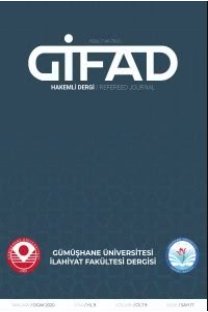TARİHSEL BİR KATEGORİ OLARAK BURJUVA MEDYA OKURYAZARLIĞI
Bu çalışma açısından belirleyici olan literatür taraması, on yedinci yüzyıldan on dokuzuncu yüzyıla dek geçen sürede, kamusal mekânlardaki okuyucunun gazete içeriklerini dönüştürme becerisini, özellikle Britanya’dan verilen örneklerle betimlemektedir. Bu bağlamda okurluk kavramı, erken dönem gazeteciliğe ilişkin alan yazınını Jürgen Habermas’ın kamusal alan kavramsallaştırmasıyla biraraya getirmenin anahtarı kabul edilmiştir. Medya okuryazarlığının burjuva kamusallığı içindeki tarihsel arkaplanını günümüz toplumlarının sorunları açısından anlamlı kılan ise, Habermas’ın daha geç dönemli bir çalışması olan İletişimsel Eylem Kuramıdır. Burjuva medya okuryazarlığının aydınlanma sürecindeki yükselişi ve sanayi kapitalizmi sonrasındaki düşüşü, yaşam-dünyası ve sistem ikiliği ekseninde açıklanabilir. Avrupa kentlerinde yaşayan tacir-zanaatkâr sınıfın dünya algısının bir formu olarak Batılı modernliğin doğuşu ve ideallerinden uzaklaşması da aynı eksende deneyimlenmiştir. Nitel yöntemler ve betimleyici sosyal bilim anlayışı bağlamında, bu çalışma toplumsal bir olgunun tarihsel örnekler üzerinden anlaşılması ve günümüzdeki varoluş koşullarının irdelenmesi amacına dönüktür. Literatür temelinde sunulan değerlendirme ise, medya okuryazarlığını dönemsel yaklaşımlar yerine farklı zamanlarda ve farklı coğrafyalarda geçerli olacak genel bir kuramsal çerçeveye oturtmanın mümkün olduğunu savunmaktadır. Böylece, burjuva medya okuryazarlığı, önceden verili eğitim programları olmaksızın kamusal alanda kendiliğinden doğan eleştirel medya okuryazarlığı yetkinliklerinin ifadesidir. Medya okuryazarlığının ve bağlı kavramların söz konusu yetkinlikler temelinde tanımlanması kuramsal çerçevenin ve genel geçerli eğitim programlarının geliştirilmesine yardımcı kabul edilebilir. Eğitim ortamında uygulanmanın ötesinde, bireylerin günlük iletişim pratiklerine taşıyacağı yetkinlikler ise modernleşmenin yeniden yapılandırılması yönünde potansiyel taşımaktadır.
Anahtar Kelimeler:
Gazetecilik, eleştirel medya okuryazarlığı, dünya algıları, bilinç, yaşam-dünyası ve sistem, burjuva kamusal alanı
BOURGEOIS MEDIA LITERACY AS A HISTORICAL CATEGORY
Decisive for this study, the literature review is aimed at describing the competencies of readers in public spaces to transform newspaper contents, with the examples especially from Britain through the seventeenth to nineteenth centuries. In this framework, the readership concept is a key, briningg together the literature on early era journalism with Jürgen Habermas' conceptualization of public sphere. On the other hand, a latter work of Habermas, Communicative Action Theory, helps to state the historical background of media literacy in the frame of contemporary problems. Thus, the rise of bourgeois media literacy during the enlightenment and the fall of it after industrial capitalism have been explicated on the axis of lifeworld and system duality. The emergence of Occidental modernity as an embodiment of bourgeois worldviews, and its alienation to its Enlightenment ideals as the fragmentation of lifeworld, had been experienced in the same direction. In the context of qualitative methods and descriptive social sciences/hermeneutics, this study purposes a comprehension of a social phenomenon through the historical examples and to examine its conditions of existence in the current era. Evaluation and conclusion based on the literature asserts the potentiality of media literacy to be grounded on a coherent theoratical frame, rather than temporary approaches. Bourgeois media literacy is an expression for self-fulfilling critical literacy competencies born in the public sphere, without any pre-determined education programs. Defining media literacy and any related concepts based on these competencies would be conducive for the development of a theoretical frame and valid educational programs against any challenges of time and place. Beyond their potential of application in education environments, critical media literacy competencies, which individuals would transfer into daily communication practices, have a potential of reconstruction of modernity.
Keywords:
Journalism, critical media literacy, worldviews, consciousness, lifeworld and the system, bourgeois public sphere,
___
- Adorno, T. W. ve Horkheimer, M. (1995). Aydınlanmanın diyalektiği: Felsefi fragmanlar (Çev: O. Özügül) İstanbul: Kabalcı Yayınevi. Christ W. ve Potter, W. J. (1998). Media Literacy, Media Education, and the Academy. Journal of Communication, 48(1), 5-15. Colley, L. (2009). Britons: Forging the Nation 1707-1837. (Revised Edition). New Haven: Yale University Press. Conboy, M. D. (2004). Journalism: A Critical History. London: Sage Publications. Ehrenberg, J. (1999). Civil Society: The Critical History of an İdea. New York: NYU Press. Habermas, J. (1987a). The Theory of Communicative Action: Reason and the Rationalization of Society, Vol.1. (İng. Çev. T. McCarthy ve J. Habermas. Boston, MA: Beacon Press. Habermas, J. (1987b). The Theory of Communicative Action: Lifeworld and System-A Critique of Functionalist Reason, Vol. 2. (İng. Çev: T. McCarthy ve J. Habermas). Boston, MA: Beacon Press. Habermas, J. (1992). The Structural Transformation of The Public Sphere. An Inquiry into a Category of Bourgeois Society. Cambridge: Polity Press. Harris, M. ve Lee, A. (1995). The Press in English Society from the Seventeenth to the Nineteenth Century. Toronto: London and Toronto Assoc. Univ. Presses. Kant, I. (2001). Answering the Question: What is Enlightenment? (İng. Çev ve Ed: A.Wood ve T. K. Abbott). Basic Writings of Immanuel Kant. Toronto: Random House Inc., 135-142. Levy, F. J. (1999). The Decorum of News. (Ed:. J. Raymond) News, Newspapers and Society in Early Modern Britain. London: Frank Cass Publications Co. Lukács, G. (1999). History& Class Consciousness: Studies in Marxist Dialectics. (İng. Çev: R. Livingstone). Massautches: MIT Press. Murdock, G. ve Golding P. (1973). For a Political Economy of Mass Communications. The Socialist Register, 1973(2), 205-234. Raymond, J. (1999). The Newspaper, Public Opinion, and The Public Sphere in The Seventeenth Century. (Ed: J. Raymond). News, Newspapers and Society in Early Modern Britain. Londra: Frank Cass Publications Co. Timur, T. (2008). Habermas’ı Okumak. İstanbul: Yordam Kitap. Weber, M. (1985). Protestan Ahlakı ve Kapitalizmin Ruhu. (Çev. Z. Aruoba). İstanbul: Hil Yayınları.
- ISSN: 2146-3301
- Yayın Aralığı: Yılda 2 Sayı
- Başlangıç: 2011
- Yayıncı: Mustafa Cankut
Sayıdaki Diğer Makaleler
SOSYAL SORUMLULUĞUN TURİZM FAALİYETLERİNDEKİ ROLÜ ÜZERİNE BİR İNCELEME
TÜRKİYE'DE TELEVİZYON DRAMA YAZARLARININ EMEK SÜREÇLERİ
İSLAMİ İNANÇ DESTİNASYONLARININ TANITIMINDA YOUTUBE VİDEOLARININ KULLANIMI
Salih GÜRBÜZ, Bayram Oğuz AYDIN
“İZLEDİM, ETKİLENDİM, ETKİLEDİM (Mİ?)”: ÇEŞİTLİLİĞE ODAKLANAN FİLMLERLE İLGİLİ ÖĞRETMEN GÖRÜŞLERİ
Cemile Kara Eren, Neslihan Avcı
BİR TÜRKİYE KONTEKSTINDE SİYASAL PAZARLAMA: DEĞERLER ve PRATİKLER
AİLE HEKİMLERİNİN İNTERNET VE SOSYAL MEDYA KULLANIM ÖZELLİKLERİNİN İNCELENMESİ
“KAŞAĞI” ADLI HİKÂYENİN AİLE İÇİ İLETİŞİM VE İLETİŞİM ÇATIŞMALARI AÇISINDAN İNCELENMESİ
